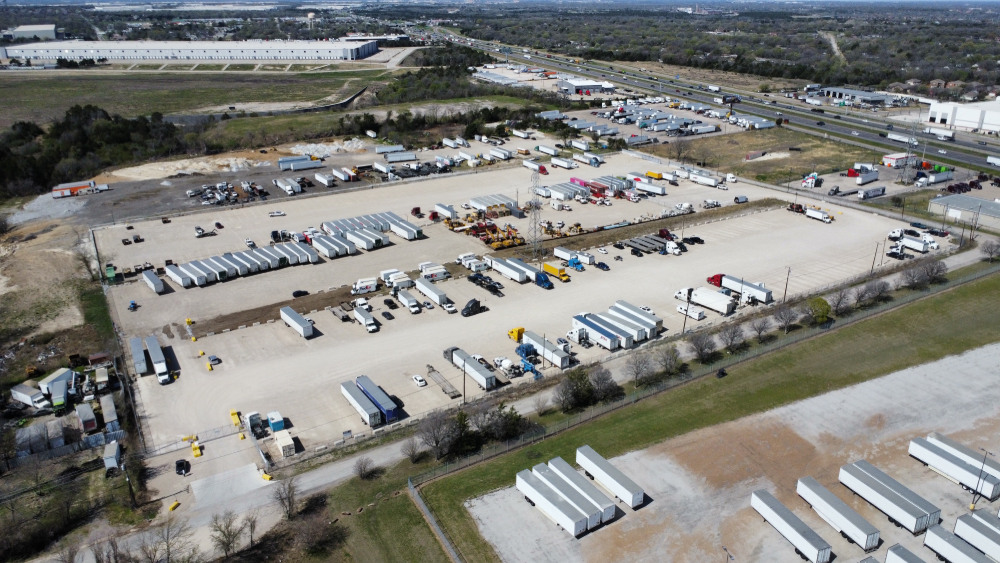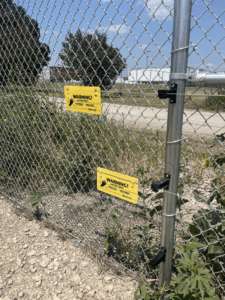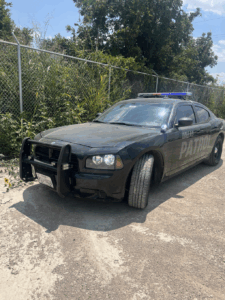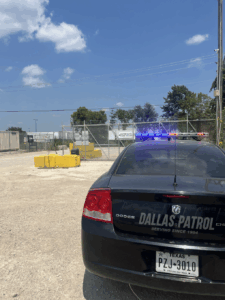If you drive a truck in Dallas, you already know that finding a legal parking spot can feel like hunting for a needle in a haystack. Between strict city ordinances, zoning rules, and tight enforcement, one wrong parking choice can mean a ticket, a tow, and a hit to your record.
Dallas is one of the busiest freight hubs in Texas, with thousands of semis, box trucks, and trailers rolling in and out every day. This simply means more traffic, more competition for space, and more eyes keeping track of where you park.
In this guide, we’ll break down what the law actually says about truck parking in Dallas, where you can park, where you can’t and how commercial truck parking lots and secure semi truck parking Dallas facilities can save you from fines, headaches, and the occasional “where’d my truck go?” moment.
Why Does Dallas Have Strict Truck Parking Laws?
There are three main reasons for strict truck parking laws. Safety, congestion, and neighborhood protection. Big rigs parked in the wrong place block traffic, create risks for other drivers and make it harder for emergency vehicles to get through. They also create noise issues, block driveways, and take up space in residential areas.
Dallas is a busy city for truckers. Every day, thousands of semis, box trucks, and trailers come through highways, surface streets, and industrial zones. With that much traffic, the city has to manage where the rigs can and can’t go. That’s why patrols are common, tickets are frequent, and parking in the wrong spot can quickly get truck drivers fines or towing.
The safest way to avoid violations is to use properly zoned commercial truck parking lots that meet city regulations instead of leaving your truck on public streets or in residential areas.
Related: What Is the Cost of Truck Parking in Dallas & Where to Find Affordable Spots?
What Counts as a “Commercial Vehicle” in Dallas?
In Dallas, a commercial vehicle is not just an 18-wheeler. According to Dallas City Code Sec. 28-81, it includes:
- Any truck-tractor, trailer, or semitrailer
- Any vehicle with a rated capacity over 1.5 tons
This means that even a small box truck or flatbed can count as “commercial” if it exceeds the weight limit. If a vehicle falls into this category, the city’s truck parking rules apply to it, without any exceptions.
On-Street Parking Rules
According to Dallas law, you can’t park a commercial vehicle on public streets, alleys, or parkways unless you are:
- Actively loading or unloading (Sec. 28-80)
- In an emergency (Sec. 28-80)
- In a marked loading zone during allowed hours (Sec. 28-81)
In residential areas, the rule is even stricter. No overnight parking for vehicles over 1.5 tons (Sec. 28-81), even if it’s in front of your own house, unless you’re actively working.
Residential Property Restrictions
Under Dallas City Code Chapter 51A, you cannot park an oversized vehicle in the front or the side yard of a home. Oversized means:
- Longer than 32 feet
- Weighing more than 1.5 tons of rated capacity
The only exception is temporary loading or unloading. This means short-term, not overnight or for days at a time.
This rule applies if you’re the homeowner and the truck is yours. Many owner-operations have been cited for parking their rigs in their own driveway. So, private property doesn’t mean a free pass.
Related: How to Find Truck Parking Nearby
Zoning Rules for Commercial Truck Parking Lots
In Dallas, outdoor truck parking is generally allowed only in Industrial Manufacturing (IM) zones. Parking in other zoning districts can result in code violations and fines.
Commercial truck parking lots in these zones must meet city requirements for:
- They should have proper screening, which means fencing or barriers that block the parked truck from public view.
- The lots must also have adequate lighting to make sure of safety and security for both drivers and their vehicles.
- In addition, they should provide proper ingress and egress so large vehicles can enter and exit safely without disturbing traffic.
If you plan to open a new commercial truck parking lot, the city requires a permit and site plan approval before you operate. Skipping this step can lead to citations and a forced shutdown.
Safety and Security Requirements
While not every safety feature is legally required across Dallas, most secure semi truck parking Dallas facilities include some protections that make a big difference for drivers.
- They usually have perimeter fencing to keep unauthorized people and vehicles out of the lot.
- Controlled access gates are common, allowing only approved drivers to enter.
- Adequate lighting is installed throughout the property so drivers can see clearly at night, and security cameras can capture detailed footage.
- Many lots also have 24/7 surveillance, which helps in warning thieves and provides valuable evidence if an incident occurs.
These security measures not only reduce the risk of stolen cargo or vandalism but can also help you be in compliance with insurance requirements and company safety policies.
Related: How to Find a Place to Park Your Truck and Trailer
Environmental and Noise Compliance
Dallas County applies anti-idling rules, which means you can be fined if your truck idles for more than five minutes. There are limited exemptions, like extreme temperatures or when operating some equipment, but most situations require you to shut the engine off.
If a commercial truck parking lot stores fuel or oil on-site, it has to follow spill containment rules to prevent leaks from reaching soil or water sources. This includes special storage tanks, secondary containment systems, and a proper disposal process.
Noise laws also apply in certain zones, especially near residential neighborhoods. This means facilities have to take steps to reduce engine noise, loading activity sounds, and other disturbances during overnight hours.
Penalties for Violations
Violating Dallas truck parking laws can hit your wallet and your record. For example, parking an oversized vehicle in a residential zone can lead to a fine of around $20 for a first offense, but the amount increases for repeat violations. If your vehicle is blocking driveways, fire hydrants, or sidewalks can have stricter penalties.
If your truck blocks public access, creates a safety hazard, or looks abandoned, the city can tow it at your expense. This only adds towing and storage fees, which also disturbs the delivery schedule.
Commercial parking violations can also affect your CSA (Compliance, Safety, Accountability) score if they’re reported. This can impact your standing with carriers, brokers, and insurance providers.
Staying Compliant: Practical Tips
The best way to avoid fines and headaches is to plan ahead. Always check zoning laws before parking long-term, if you’re in an unfamiliar part of Dallas. What’s legal in one area can get you a ticket just a few blocks away.
When it is possible, use commercial truck parking lots instead of public streets. These are made for large vehicles and meet city regulations, so you are less likely to get into legal trouble. Choosing a secure semi truck parking Dallas location is another layer of protection against theft, vandalism, and unauthorized access.
Finally, keep copies of your delivery or pick-up documentation in the cab. If an officer asks why you’re parked in a certain spot, having proof of active loading or unloading can save you from a citation.
Related: How to Store My Truck: Safe, Spacious & Convenient Parking Solutions
Quick Reference Table
Truck parking laws in Dallas can feel like a maze. Between zoning rules, time limits, and vehicle size restrictions, it’s easy to get caught off guard. A simple, short stop in the wrong place can turn into a ticket or even a tow.
That’s why, to make it easier, this is a quick guide showing common situations and if they’re legal and where the rule comes from.
| Situation | Legal? | Code Reference |
| Semi on public street overnight (not loading) | Illegal | Sec. 28-80 |
| Commercial truck in residential driveway | Illegal | Sec. 28-81/ ch. 51A |
| Truck in IM-zoned commercial lot | Legal | Zoning Regulations |
| Idling over 5 mins in Dallas County | Illegal | Anti-idling law |
This table is not a replacement for knowing the full city code, but it’s a quick way to check the most common parking situations drivers face in Dallas. If you’re unsure, it’s safer to choose a commercial truck parking lot that has secure semi truck parking Dallas. So, you know you’re on the right side of the law.
Final Thoughts: Park Smart, Stay Legal, Sleep Easy
Dallas doesn’t mess around when it comes to truck parking laws, and neither should you. Get it wrong, and you’re looking at fines, tows, or worse damage to your professional record. But you don’t have to play the guessing game.
For peace of mind, know you’re legal, and actually get some rest on the road, leaning into safe choices that make sense. One standout option is Dallas Truck Parking, a facility located off I-20 between I-35 and I-45 that offers safe, well-lit, and hassle-free parking. It’s tucked away from drive-by traffic, making entry and exit a breeze.
Choosing commercial truck parking lots like this doesn’t just make your life easier. It keeps you off the city’s radar for enforcement, and lets you avoid the tightrope of residential or street parking bans. It sets you up for fewer headaches on the road.
Let’s recap what makes a spot safe:
- Know the rules and don’t break them. Zoning, weight limits, and loading rules apply even in your own driveway.
- Stick to legal lots. Those that meet security and lighting standards.
- Pick spots that make sense, like Dallas Truck Parking, so you don’t have to worry about fines, towing or sleepless nights.
Related: Commercial Truck Parking Dallas, TX






